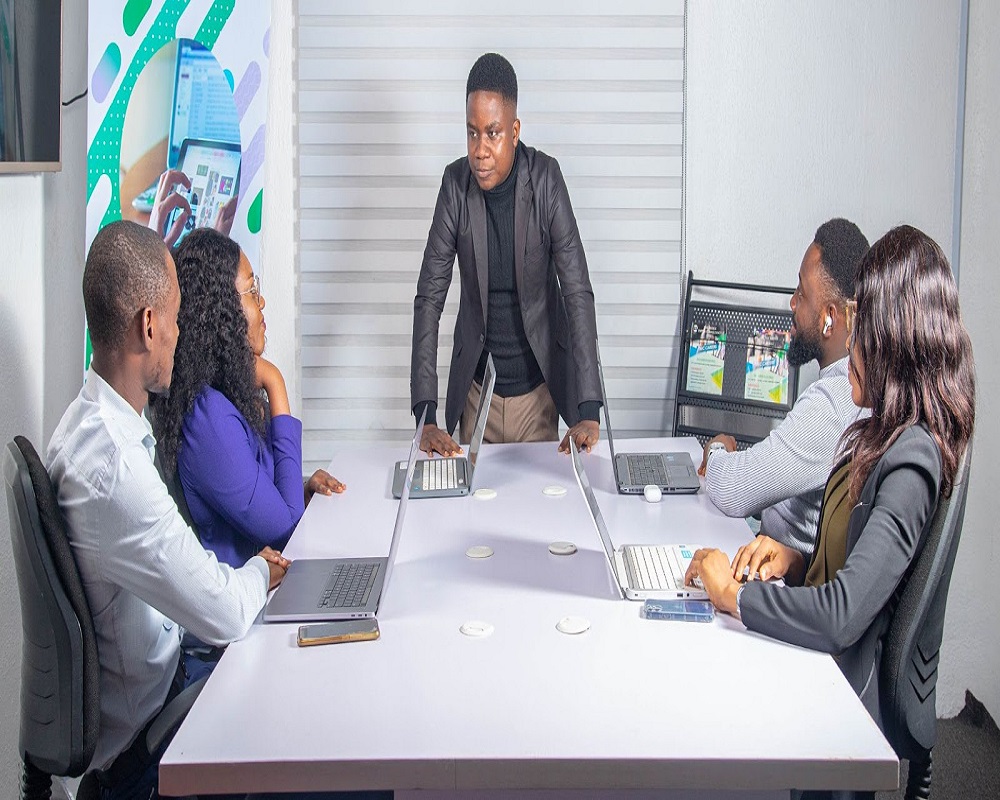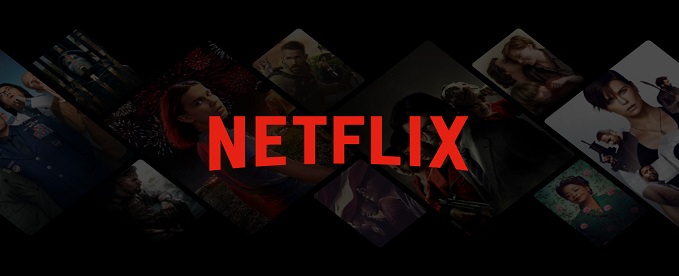Broadcasting
Zwarttalent Charges Governments Across Africa to Tackle Poverty with Tech Education

Zwart Talent Foundation, a nonprofit organisation that bridges the growing tech talent gap, has called on governments across Africa to tackle poverty on the continent with tech education.

The Foundation which was recently launched made this call through its Chairman, Nelson Tosin Ajulo at a recent roundtable with IT experts, policymakers and tech enthusiasts.
Ajulo said in his address: “Poverty is a problem across the world. It is not peculiar to only Africa. Regardless, the developed world has made us believe that Africa is the poverty capital of the world. This is not true. Despite this, we have to find quick and practical solutions to combat endemic poverty on the continent.
“We strongly believe that the right type of education can lift millions of underserved Africans out of Poverty. Today, the right kind of education is IT or tech education. This is because of the worldwide shift to the digital economy. The kinds of jobs out there have changed.
“Global companies are looking for software experts, coders, UX UI designers, and system analysts among others. If we deploy efforts into training youths in tech education, they are guaranteed to get both local and international jobs to earn more and eventually take their families and communities out of poverty.”
The World Bank reports in its recently published Poverty and Shared Prosperity report 2020 that the concentration of high poverty rates in Sub-Saharan Africa recalls the image of a poverty belt extending from Senegal to Ethiopia and from Mali to Madagascar. Half of the countries in SSA have poverty rates higher than 35%.
The Bank adds that these numbers become even more alarming when compared with the levels of extreme poverty in other regions. Of the top 20 economies with poverty rates estimates, 18 are in SSA.
On what Zwarttalent is doing to tackle poverty, the Chairman says that it is training the vulnerable and young African population in IT skills to enable them to boost their economic status.
“At Zwart Talent Foundation, our social innovation is that we train underserved youths in IT skills for free and within two years, they become junior developers and start earning.
“Our solution is quick, effective and not time-consuming compared to the typical education we are all familiar with.
“With this, we can get thousands out of poverty. But we can’t do this alone. We need every support we can get because with African population growing at a geometric rate, it will get to a point where the typical education cannot suffice and there would be serious competition for the limited resources.”
Broadcasting
Netflix Expands Language Options on TV to Capture Global Viewers

Netflix has expanded its language options for television viewers, allowing users to select from the full list of available subtitles and dubbing languages for any title.

This update aims to make Netflix’s global catalogue more accessible, especially as nearly a third of its viewership comes from non-English language shows.
Previously, TV users could only choose from a limited selection of languages based on their location and settings.
Now, they can access the complete range of available languages for any title, similar to the flexibility already offered on mobile devices and web browsers.
For instance, a user can watch an English title like “Bridgerton” with Spanish dubbing and Korean subtitles, or opt for Japanese dubbing with Portuguese subtitles.
Netflix offers subtitles in 33 languages and audio dubbing in 36 languages across its catalogue, though the exact number of available languages may vary by title. This change responds to numerous user requests for more language options on TV platforms.
This move reflects Netflix’s commitment to enhancing accessibility and catering to its diverse global audience by providing more inclusive viewing experiences.
Broadcasting
AMCON Gets Boost as Arik Air Records 2.2M Passengers, 10,699 Flights in 2024 – NCAA Report

Arik Air in 2024, airlifted 2,239,176 passengers between January 1, 2024, to December 31, 2024, a report sourced from the Nigeria Civil Aviation Authority (NCAA) has confirmed.

The airline, which has been under the receivership of Asset Management Corporation of Nigeria (AMCON) since 2017, despite its challenges, also operated 10,699 flights within the year under review, making it the second most active airline in terms of passenger traffic and flight operations in Nigeria, after Air Peace.
According to the report, the total number of air travellers in the domestic scene in 2024 was 11, 549,443 with inbound at 5,727,700 and outbound passengers at 5,821,743. This figure shows that Arik Air captured 19.3 per cent of the total passenger traffic for 2024, while it had 15.1 per cent of the total 70,543 flights operated by the 15 domestic airlines in the year under review.
The Executive Summary on International and Domestic Flight Operations 2024, as captured by the NCAA, indicated that Arik Air had 1,112,358 and 1,126,818 as inbound and outbound passengers for 2024, respectively, making it a total of 2,239,176 passengers ferried in 2024.
Monthly breakdown of the passenger traffic indicated that Arik Air had 37,772 inbound passengers and another 38,987 as outbound passengers in January 2024, totalling 76,759 passengers. For February the airline recorded 38,217 as inbound and 39,209 as outbound, totalling 77,426; March, 37,183 as inbound and 37,642 as outbound, making it a total of 74,825; April, 31,326 as inbound and 31,971 as outbound, making 63,297.
The airline in May 2024, also recorded 39,006 as inbound and 39,765 as outbound passengers, totalling 78,771 for the month, while the month of June had 37,710 as inbound and 38,617 as outbound, totalling 76,327; July, 156,146 as inbound and 159,044 as outbound, totalling 315,190; August, the airline recorded 153,080 as inbound and 144,259 as outbound, making it a total figure of 297,339 within the period.
For the month of September, Arik Air recorded 143,396 as inbound and 145,096 as outbound, making it a total figure of 288,492; October 129,506 as inbound and 133,330 as outbound, totalling 262,836; November, 252,448 as inbound and 255,578 as outbound, making it a total of 508,026, while December had 56,568 as inbound and 63,322 as outbound, making it a total of 119,890 passengers ferried within the period.
Also, a month-by-month breakdown of flights operated by Arik Air in 2024 showed that the airline had a total number of 380 flights in January, 2024; 419 flights in February and 468 flights in March 2024.
Further breakdown showed that for the month of April, the airline operated a total number of 340 flights; May, 374; June, 350, while it peaked in July, going as high as 1,403 flights in just one month.
Besides, in August, the airline operated 1,320 flights; in September, 1,352; in October, 1,266; in November, 2,442, while it operated a total of 585 flights in December 2024. The airline within the period also had a total number of complaints among the air travellers, with just 190, with the majority being resolved by the airline.
The further breakdown of complaints indicated that for the month of January, there were no single complaints from any of its air passengers ferried within the period, had just two complaints in February, while March recorded only one complaint.
April had four complaints; May, two; June, one; July, three; August received seven complaints; September, 28; October, 50; November, 67, while December 2024 recorded only 25 complaints from the flying public. Besides, Arik Air did not record a single baggage miss in 2024, with all 84 delayed baggage items, as indicated by the NCAA statistics, were handed over to their owners.
Furthermore, unlike other domestic airline operators, Arik Air had only one overbooking/denied flight in its entire 10,699 flights in 2024. This was in October 2024.
Olumide Ohunayo, General Secretary Aviation Safety Round Table Initiativs said: “Arik Air’s performance in 2024 stands out as exceptional, despite the airline being under AMCON receivership. The data released by the regulatory authority ranked Arik as second in domestic passenger traffic, moving 2,239,176 passengers—a testament to its resilience and strategic management under challenging conditions.
“With a 13.4% market share out of the 11.5 million total domestic passengers, Arik Air’s sustained dominance highlights its strong operational efficiency. This result demonstrates Arik’s operational stability under Receivership despite financial constraints, distractive litigations, fleet limitations, and regulatory challenges, the airline continued to deliver reliable air travel services, showing effective route management and passenger demand optimization.
“It should be noted that Arik Air suffered severe disruptions due to a high court order grounding some of its aircraft last year when mediation was a better option to the instantaneous grounding by the executive.”
In his comment Roland Iyayi MD of Top Brass Aviation Limited said: “Arik Air transporting 2.2 million passengers and securing the second position in Nigeria’s domestic market, ahead of competitors like Ibom Air (1.3 million), Max Air (915,918), and Aero Contractors (964,900) is a huge and massive achievement, considering the disruptions the airline had suffered under receivership.
“Arik Air’s performance is remarkable given its limited access to fresh capital, aging fleet, and regulatory hurdles tied to its receivership status.
“The Asset Management Corporation of Nigeria (AMCON) strategic support deserves recognition for its crucial role in stabilizing Arik Air, ensuring its continued operations, and maintaining confidence among passengers. Without AMCON’s intervention, the airline would not have remained a key player in Nigeria’s aviation industry. Arik Air’s ability to thrive under receivership reaffirms AMCON’s commitment to preserving jobs, sustaining economic contributions, and ensuring safe, reliable airline services for Nigerian travelers.”
Broadcasting
Lagos Dominates NIN List as Nigeria Hits 117 Million Registrations

National Identity Management Commission (NIMC) has announced a milestone achievement, with over 117 million Nigerians now enrolled for the National Identity Number (NIN) as of February 28, 2025.

Lagos State emerged as the top contributor to this figure, boasting over 12.6 million registrations, followed by Kano State with 10.2 million.
According to NIMC’s latest data, male registrants outnumber female registrants, making up 56.5% of the total enrollment at 66,281,803, while female registrants account for 43.5% at 51,079,521.
The report highlighted regional enrollment trends, showing an almost equal distribution across Nigeria’s northern and southern regions.
However, Bayelsa, Ebonyi, and Ekiti States recorded the lowest enrollment figures, with Bayelsa reporting a mere 758,111 registrations.
Lagos State dominated the charts with 6,870,915 males and 5,741,419 females registered, while Kano trailed closely, boasting 5,924,126 males and 4,321,929 females in its 10.2 million total registrations.
Other notable states in the top 10 include Kaduna, Ogun, Oyo, Katsina, and Rivers. NIMC expressed optimism about further improving enrollment figures in underrepresented regions in the coming months.

 News2 days ago
News2 days agoNIPSS Projects Petrol Prices to Hit ₦750/Litre Before Year’s End!

 E-Financial2 days ago
E-Financial2 days agoFidelity Bank Reports N385.2Bn Pre-Tax Profit for 2024

 E-Business2 days ago
E-Business2 days agoNIMC Says NIN Mandatory to Government Loans

 General News2 days ago
General News2 days agoFinancial Cyberthreats Report Reveals 3.6Ttimes Surge in Mobile Banking Malware

 News2 days ago
News2 days agoFG to Create 1m Technology Jobs – Minister

 E-Financial2 days ago
E-Financial2 days agoNew Investment Law Empowers SEC to Obtain User Data from Telcos

 E-Business2 days ago
E-Business2 days agoAfrica’s Data Workers are Being Exploited by Foreign Tech Firms – Report

 E-Financial2 days ago
E-Financial2 days agoPonzi Operators Risk 10-Year Jail Term, N20m Fine – SEC



























